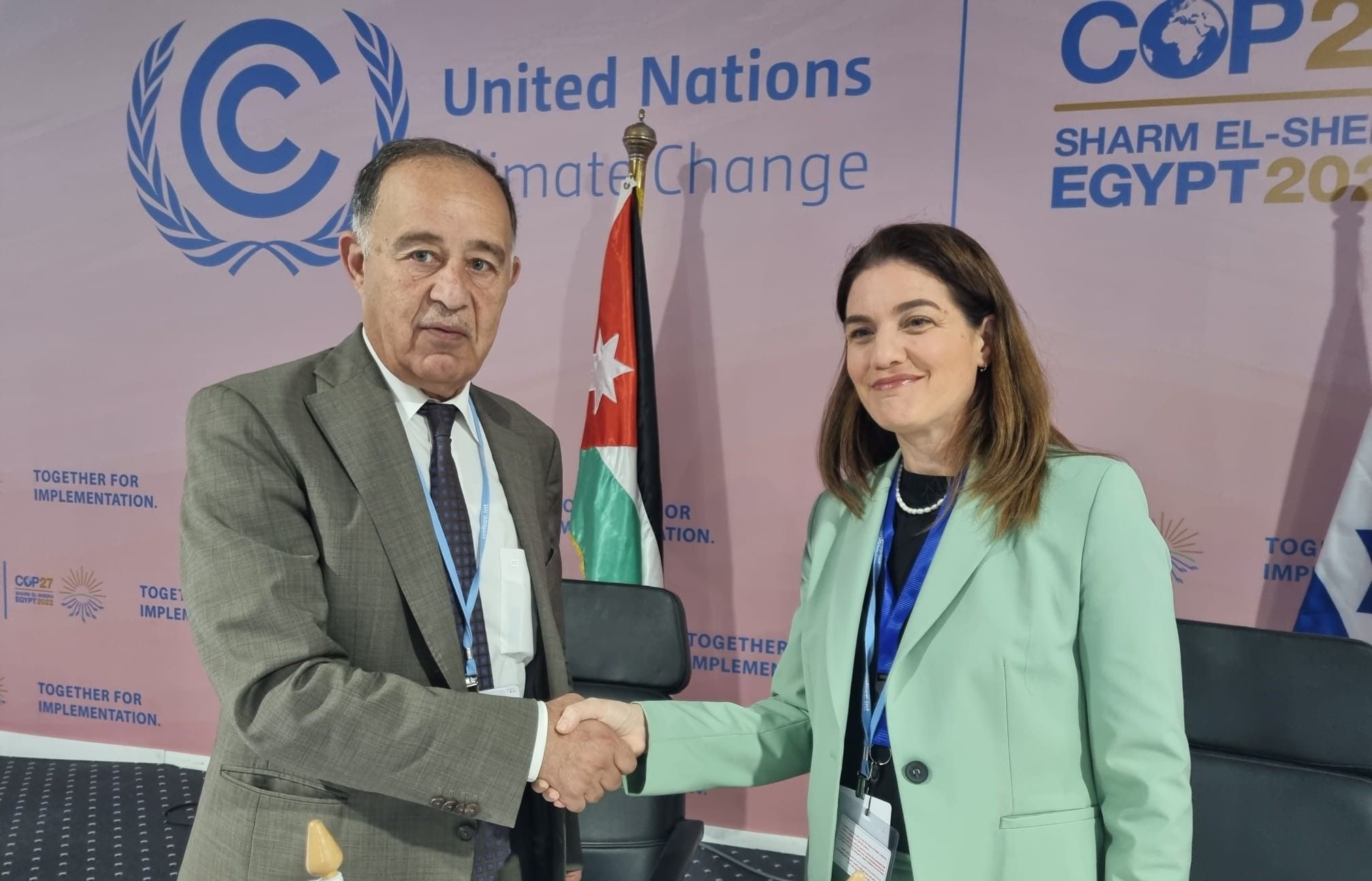Emiraty, German & Israeli Researchers to Collaborate on Sea Research
First of its kind collaboration signed at COP 27 between the universities of Khalifa, UAE and Haifa and Geomar Institute, on climate change and pollution impacts in Mediterranean Sea and Arabian Gulf

Trilateral Collaboration was signed on Nov. 14th at COP 27 between the University of Haifa (Israel), Khalifa University and United Arab Emirates University (United Arab Emirates) and GEOMAR Helmholtz Centre for Ocean Research Kiel (Germany), on climate change and pollution impacts in mediterranean sea and arabian gulf.
The Memorandum of Understanding should lead to a five-year study to enhance the understanding and develop mitigation strategies for the marine ecosystems of the eastern mediterranean sea and arabian gulf. The trilateral collaboration will extend the existing partnership between GEOMAR and Haifa on the project EMS FORE (www.emsfore.eu).
Our oceans are facing a range of pressures related to climate change and pollution. The Eastern Mediterranean Sea and Arabian Gulf are marine environments that are strongly impacted by ocean warming, de-oxygenation, dust deposition, expansion of sea-water desalination plants, exploitation of deep-sea energy resources, intensive shipping, invasive species, mariculture, expanding tourism and geopolitical turmoil.
We are lacking essential understanding of the consequences of these pressures on the ecosystems of the Eastern Mediterranean Sea and Arabian Gulf. An increasing awareness has grown that these ecosystems need to be protected and managed in a sustainable way that will look after and enhance biodiversity, ecosystem services and ensure economic viability and growth for the local populations. .
The researchers will use advanced ocean observing technologies, such as underwater vehicles, novel cameras, and chemical sensors but also proteomics, metagenomics, and marine ecosystem models to integrate the data and predict future ocean responses. With the help of multidisciplinary investigations, the research will gain information about the past as well as insights into current processes in the water column and seafloor, and develop models to find out what the future will look like for the Mediterranean and Arabian Gulf.
Inclusion of the public and other stakeholders forms an important part of the Trilateral Partnership. Education of a new generation of early career scientists, PhD and MSc students is also central to the Partnership. This is especially crucial in geographical regions of cultural/political/religious conflicts where joint work on sustainable use of marine systems will benefit all populations and can help build bridges and establish trust and partnerships for a better future.
The team of researchers: • Leon H. Charney School of Marine Sciences, University of Haifa: Prof. Ilana Berman-Frank ([email protected]) , Prof. Dan Tchernov ([email protected]). • GEOMAR Helmholtz Centre for Ocean Research Kiel: Prof. Eric Achterberg ([email protected]). • Khalifa University: Prof. Lakmal Seneviratne ([email protected]), Dr. Maryam Rashed AlShehhi ([email protected]) • United Arab Emirates University: Prof. Waleed Hamza ([email protected]), Dr. Aaron Henderson ([email protected]).
Source: University of Haifa Press Release from 14.11.22.

